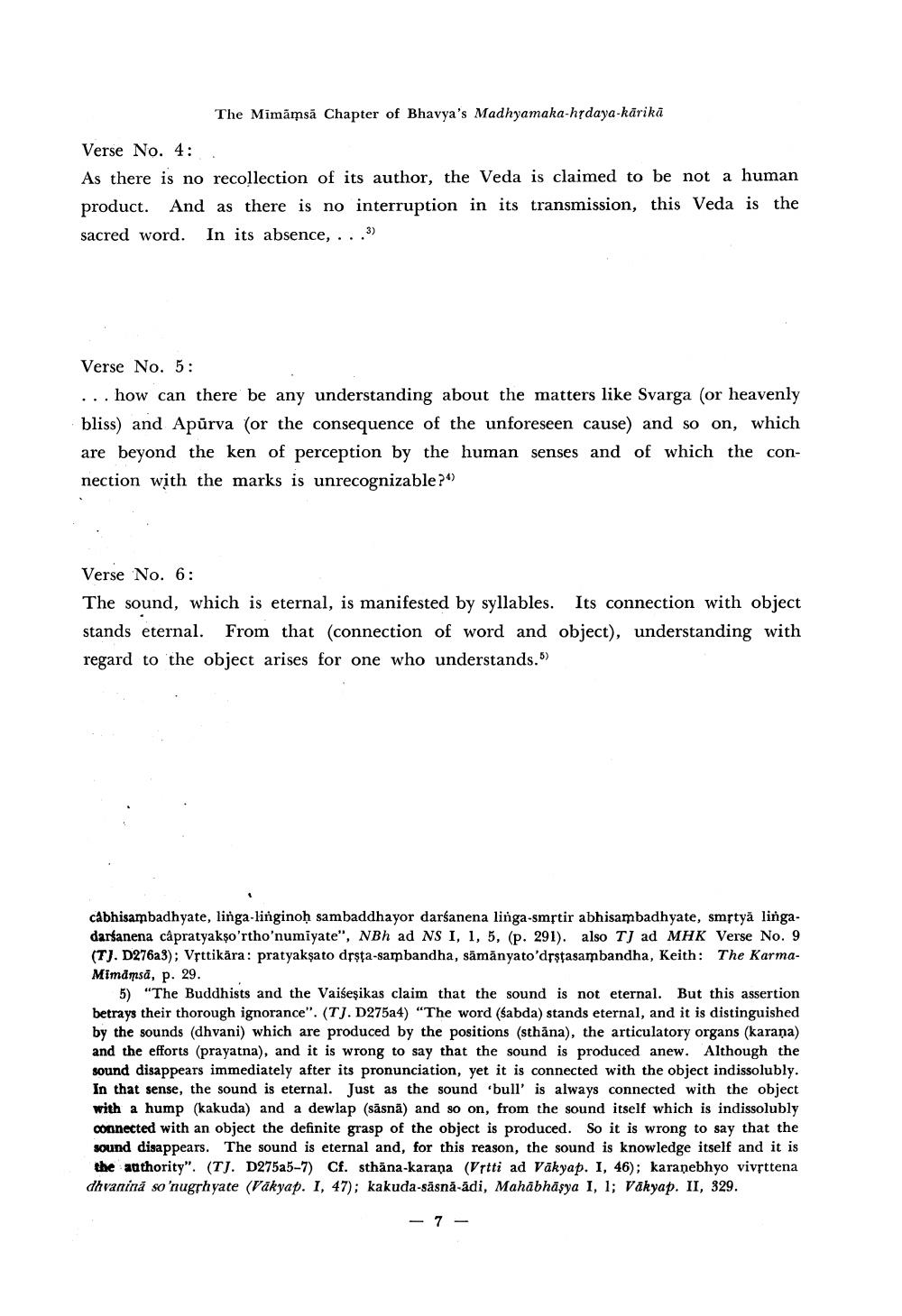Book Title: Mimansa Chapter Of Bhavyas Madhyamaka Hrdaya Karika Author(s): Shinjo Kawasaki Publisher: Shinjo Kawasaki View full book textPage 7
________________ The Mimämsä Chapter of Bhavya's Madhyamaka-hrdaya-karika Verse No. 4: As there is no recollection of its author, the Veda is claimed to be not a human product. And as there is no interruption in its transmission, this Veda is the sacred word. In its absence, ...3) Verse No. 5: ... how can there be any understanding about the matters like Svarga (or heavenly bliss) and Apūrva (or the consequence of the unforeseen cause) and so on, which are beyond the ken of perception by the human senses and of which the connection with the marks is unrecognizable?" Verse No. 6: The sound, which is eternal, is manifested by syllables. Its connection with object stands eternal. From that connection of word and object), understanding with regard to the object arises for one who understands." cabhisambadhyate, linga-linginoḥ sambaddhayor darśanena linga-smptir abhisambadhyate, smptyā lingadarśanena câpratyakso'rtho'numiyate", NBh ad NS I, 1, 5, (p. 291). also TJ ad MHK Verse No. 9 (TJ. D276a3); Vrttikära: pratyaksato drsta-sambandha, sämänyato'drstasambandha, Keith: The KarmaMimamsa, p. 29. 5) "The Buddhists and the Vaiseşikas claim that the sound is not eternal. But this assertion betrays their thorough ignorance". (TJ. D275a4) "The word (sabda) stands eternal, and it is distinguished by the sounds (dhvani) which are produced by the positions (sthāna), the articulatory organs (karana) and the efforts (prayatna), and it is wrong to say that the sound is produced anew. Although the sound disappears immediately after its pronunciation, yet it is connected with the object indissolubly. In that sense, the sound is eternal. Just as the sound 'bull' is always connected with the object with a hump (kakuda) and a dewlap (sāsnā) and so on, from the sound itself which is indissolubly connected with an object the definite grasp of the object is produced. So it is wrong to say that the sound disappears. The sound is eternal and, for this reason, the sound is knowledge itself and it is the authority". (TJ. D275a5-7) Cf. sthana-karana (Vrtti ad Väkyap. I, 46); karanebhyo vivsttena dhvanină so'nugrhyate (Vakyap. I, 47); kakuda-säsna-adi, Mahabhäsya I, 1; Väkyap. II, 329. – 7 –Page Navigation
1 ... 5 6 7 8 9 10 11 12 13 14 15 16 17 18 19
